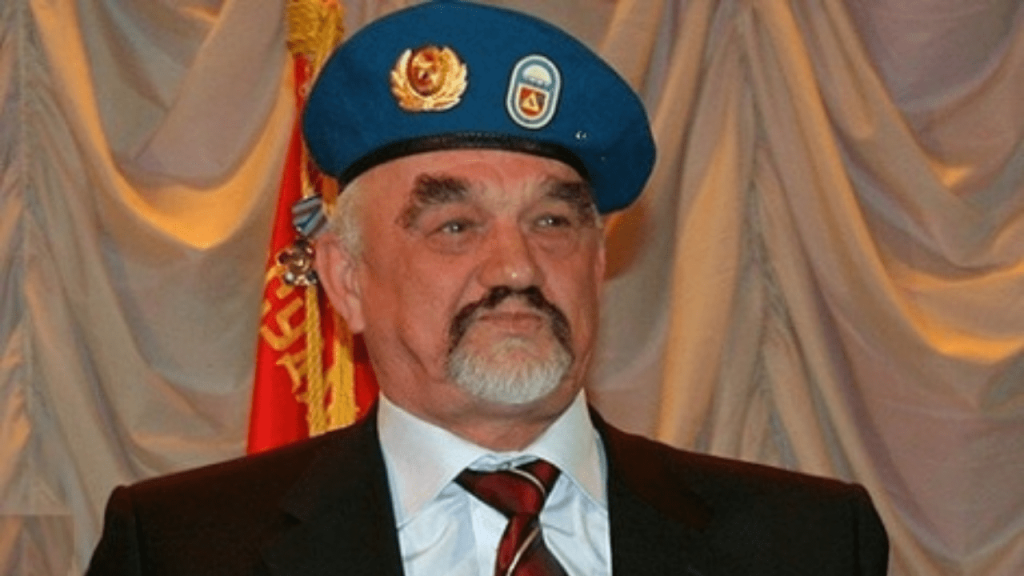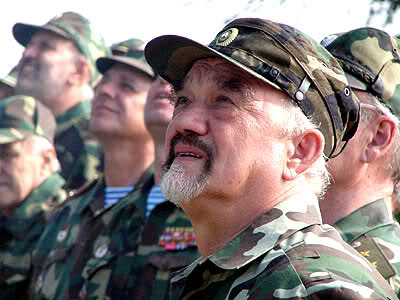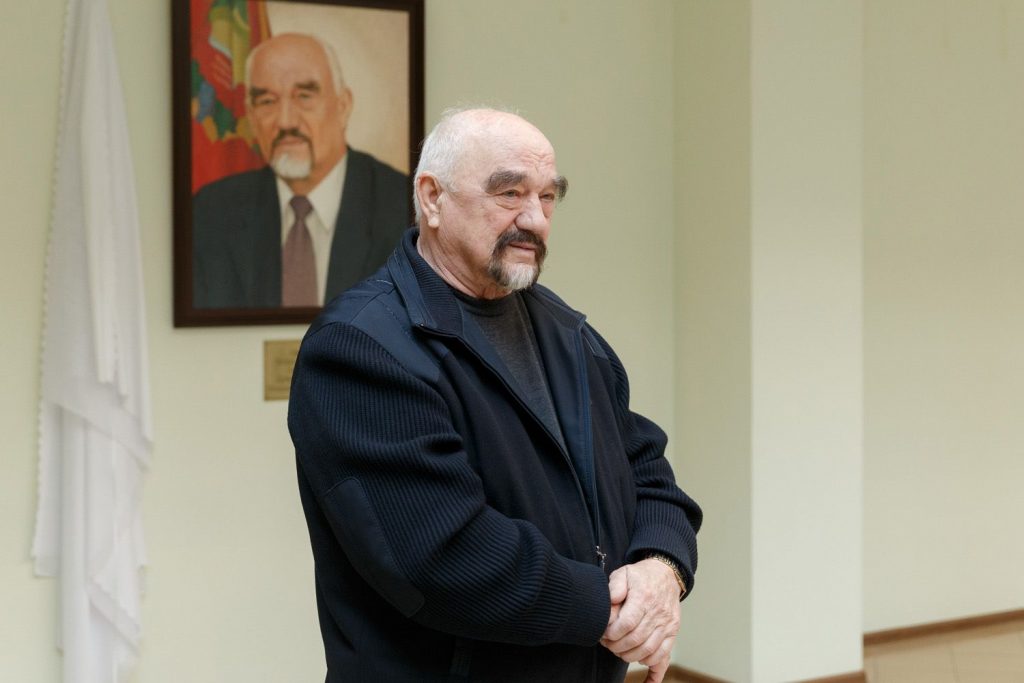For the past decade, YPT has been running trips to the breakaway state of Transnistria. Described as ”The last corner of the Soviet Union”, this dark corner of Eastern Europe is truly one of the most fascinating and off-the-beaten-track travel destinations that exist.
Aside from Lenin statues, tanks, and a whole host of Soviet nostalgia, the unrecognized country has produced some seriously interestingly, albeit dark, characters that are morbidly fascinating. In the past, we’ve covered five of the most infamous characters to have come out of the region.
In this article, we’re going to cover the man who became the twenty-year ruler of the breakaway territory after a rocky beginning in the Transnistrian Civil War: Igor Smirnov.
Igor Smirnov – The Early Days
During our annual Transnistria National Day tour, our YPT tour group had the chance to meet Igor Smirnov. Surrounded by KGB bodyguards and dressed sharp, he was a blunt but polite character and undoubtedly astute. This is a man who has seen it all. But just how exactly is he?

A few months into the Nazi invasion of the Soviet Union in 1941, Igor Smirnov was born. Igor was not actually a native of the Transnistria region but was in fact born 7,375 km away in Kamchatka on the other side of the USSR. His father, who held a significant position in the Communist Party, gave his family the ability to travel across the USSR.
His father’s work within the party brought Igor, his mother, and his two brothers to the Ukrainian SSR that had recently been liberated from Nazi occupation. Here, Igor’s father was promoted to the rank of First Secretary in what is now the Kherson region of Ukraine on the Black Sea. His popularity within the party, however, was to be short-lived.
When Igor was just 11 years old, his father was accused of taking advantage of his position to increase his family’s food allowance. He was handed a sentence of 15 years in the Gulag system of the USSR with a combined period of 5 years of internal exile.

This left Igor and his family labeled as enemies of the people and, without a man of the family, life was extremely hard. Fortune came to the family two years later when Stalin died, leading to the release of Igor’s father alongside many other Gulag prisoners.
Despite what happened to his father, Igor was heavily active in traditional Soviet activities which was a wise choice at the time. He married an engineer, got a degree, and joined the Soviet Army as an officer. Upon his return to civvie street, he began a career in the Soviet Union’s booming industrial sector.
Igor worked his way up into prestigious positions in various industrial plants across Ukraine until, in 1987, he was put in command of an electronics factory in Tiraspol in the Moldovan SSR. Two years later, the USSR would begin to tear apart and the region would erupt into civil war.
The Collapse of the USSR
As the Russian-speaking region of Moldova went head to head with the Moldovan-speaking side of the country, the civil war was looming. Before shots were fired, Igor Smirnov was one of the key players in the politics that preceded the outbreak of the Transnistrian Civil war.
When Moldova began making attempts to secede from the USSR, it was revealed that Moldovan would replace Russian as the official language of Moldova, Smirnov led a strike that saw industrial activity cease in Transnistria.
Although the Transnistria region was home to almost all of Moldova’s industry, the strike didn’t cause the intended ripple effect on Chisinau. Smirnov needed a new tactic.
He ran for elections for the Moldovan parliament (then called the Supreme Soviet), and won. Tiraspol was now under the command of his party. However, when other candidates of Smirnov’s party were violently attacked by pro-Moldovan protestors in Chisinau, they returned to Chisinau to form their own Soviet Republic that would stick with the USSR as Moldova left.
By 1990, tensions between Moldova and Transnistria were at boiling point. On the 2nd of September, now the date of Transnistria’s independence day, Smirnov and his men proclaimed the creation of the Pridnestrovian Moldavian Soviet Socialist Republic (PMSSR).
The Warlord Era
By mid to late 1991, the situation had degenerated into extreme violence. As The Angry Warlord put it, Igor Smirnov could certainly not be compared to warlords in places like Africa. His role was primarily focusing on getting Transnistria recognized as a legitimate state.

However, protected by heavily armed ex-KGB agents out of work, Smirnov was present throughout the height of the fighting. And although the conflict was initially fought between poorly armed separatists and the Moldovan police and militias, it soon escalated.
“Although certainly no Charles Taylor, Igor Smirnov played a large role in securing the support of local Soviet troops and thus escalating the Transnistrian Civil War.”
– Angry Warlord
In late 1991, Smirnov secured the assistance of a local Soviet Army unit stationed in Transnistria. With rapidly decreasing orders from Moscow, locally-based Soviet soldiers soon began to flood into the conflict bringing with them their weapons, artillery, rockets, ammunition and, moral support to the separatist cause.
Smirnov After The War
In December of 1991, Igor Smirnov was elected as the president of Transnistria. He would go on to serve as the unrecognized country’s president for just shy of two decades. In 2011, he was voted out when the Kremlin finally got fed up with his refusal to pay for Russian gas and his decision to sever diplomatic talks with Moldova and was replaced by the rather controversial Yevgeny Shevchuk.

After five years in power, Smirnov’s successor ended up fleeing into Moldova by boat when Transnistria issued an arrest warrant for him. Shevchuk was fleeing six serious criminal charges ranging from corruption and smuggling to abuse of power and misappropriation of state money. If he comes back, he’ll be jailed for 12 years.
Related Transnistria Articles
Although no longer president and now 79 years old, Smirnov has by no means retired. He has vowed to complete his life’s work of getting Transnistria recognized as an independent state and will only retire when he does.
Disclaimer: The vast majority of people living in Transnistria are decent, honest, and hard-working people. Our articles focus on the darker segments of its history and society simply because of how fascinating it is to people outside of Transnistria. The people covered in our articles are in no way representative of the wider population of Transnistria.
Sources:
- Transnistria Celebrates Independence Alongside Russian Officials
- The 6 Famous Warlords Who Became Presidents
- Consolidating Power in Transnistria





